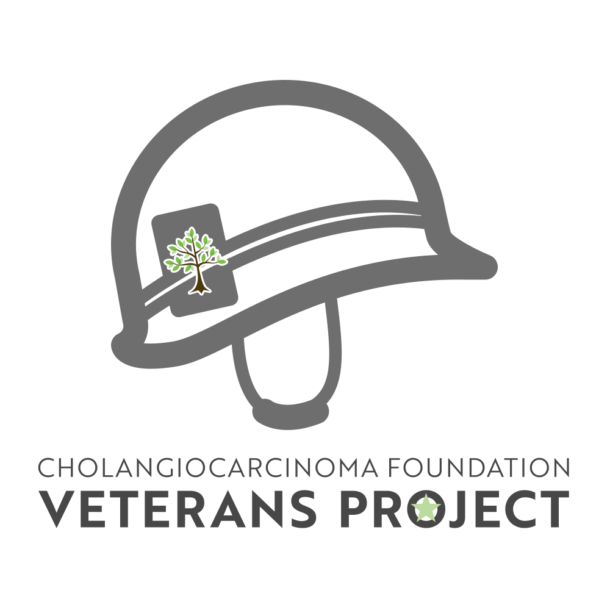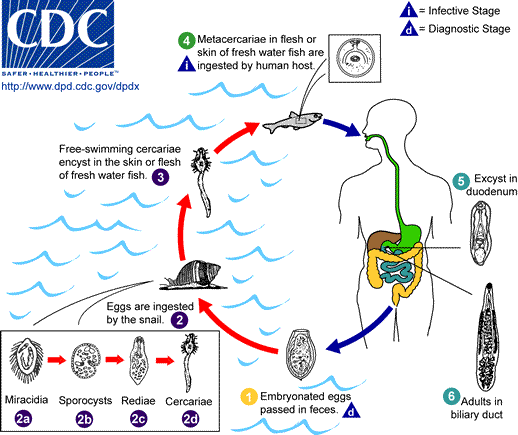The Cholangiocarcinoma Foundation acknowledges veterans of wartime eras and thanks them for their service.
As you are well aware, your service in the military may have exposed you to risk factors that may have contributed to the diagnosis of cholangiocarcinoma.
Information and resources have been gathered for you regarding this possible exposure. Department of Veterans Affairs claims-related information is also shared here for your reference.
Please reach out to advocacy@curecca.org with any questions regarding navigating your diagnosis journey.

*If in the process of filing a claim, please note: There is no retroactive effective date back to the first time the Veteran filed a claim with the PACT Act. If a Veteran has an appeal pending, do not pull or withdraw it. In lieu of the PACT Act the earliest possible effective date under the Act is August 10, 2022 – the date the legislation was signed into law.
Facts About Vietnam Veterans and Cholangiocarcinoma
- Vietnam Veterans were exposed to two different risk factors regarding developing Cholangiocarcinoma due to their service in Vietnam.
- The risk factors are exposure to liver flukes and dioxin, which is in Agent Orange. (Documentation is available in the research files for both liver fluke and herbicide exposure).
- Although, exposure to the liver fluke in Vietnam is mainly through eating, raw, undercooked salted, or fermented fish, there are cases which have been contracted through cross contamination. (Documentation is available in the research files).
- The VA has approved claims for liver fluke exposure and herbicide exposure. (Documentation and approved claims are available in the research files).
- In some cases the VA will state the Agent Orange Studies by the National Academy of Sciences as reasons not to recognize this cancer. Research will show, due to the rarity and other factors regarding this cancer, Agent Orange Studies are flawed. (Documentation is available in the research files).
- In many cases the VA will deny service connection because the veteran did not show symptoms in the service or within a year after discharge. The veteran did not have to have symptoms in the service or within a year after discharge for this to be service connected. In the majority of cases, this cancer is asymptomatic and in most cases takes 30 to 40 years to develop. (Documentation is available in research file).
U.S. Department of Veterans Affairs
The Department of Veterans Affairs recently created a page to inform Vietnam Veterans and others who served in areas where the liver flukes are prevalent, so they can be aware of the symptoms of Cholangiocarcinoma.
Although, the VA acknowledges the risk of the veterans being exposed to liver flukes, they state, they do not have sufficient studies to say whether Vietnam Veterans are getting this cancer at a higher rate than other groups of people. However, not having studies does not negate the fact that Vietnam Veterans were exposed to one definitive risk factor (liver flukes) and another possible risk factor (dioxin).
Cases brought to the VA for approval for service connection in regard to both liver fluke and herbicide exposure have been granted and approved. In approving these cases, it demonstrates the VA recognizes the connection. Therefore, it should be recognized in all cases.
As far as studies go, The National Academy of Sciences (NAS) is responsible for compiling data to determine what illnesses Vietnam Veterans are getting due to Agent Orange (Dioxin would be included in this).
In speaking with the Staff Director who is in charge of the study, he conveyed that due to the fact Cholangiocarcinoma is such a rare cancer, it is not possible for them to study it in relation to Agent Orange exposure. For these types of situations with a rare cancer, it takes something other than reviewing scientific information to determine if Vietnam Veteran are getting this cancer at a higher rate than other groups of people. Also, they are not able to study the connection of the liver fluke in relation to Vietnam Veterans, since it has only been approved for them to study herbicide exposure. As a result, the question that should be asked, is what proof does the VA have that Vietnam Veterans are not getting this at a higher rate than other groups of people?
Liver Flukes and Cholangiocarcinoma
- The two liver flukes that the Vietnam Veterans may have been exposed to are Opisthorchis viverrini and Clonorchis sinensis. Both are classified as Group 1 carcinogens. Both can cause Cholangiocarcinoma
- Infection with the liver flukes does not necessarily mean that a person will develop Cholangiocarcinoma, however it puts a person at higher risk to develop it. This explains why not every Vietnam Veteran who served in Vietnam or where the flukes are endemic will be diagnosed with Cholangiocarcinoma.
- Although, the primary way of ingesting liver flukes is through eating undercooked salted, raw or fermented fish, there are cases where it can be transmitted through cross contamination and unsanitary food practices.

Veterans’ Survivors
If you are a veteran’s survivor, please accept our deepest condolences on losing your loved one. We understand that this was a challenging and emotional journey for you. If you decide you want to pursue a VA dependency and indemnity compensation (VA DIC) payment, we have provided links to the VA page here:
Per the VA PACT Act page, survivors may be eligible for VA benefits based on the this legislation.
Unlike Veterans awaiting appeals, there is a retroactive effective date back to the time widows/widowers filed under the PACT Act.